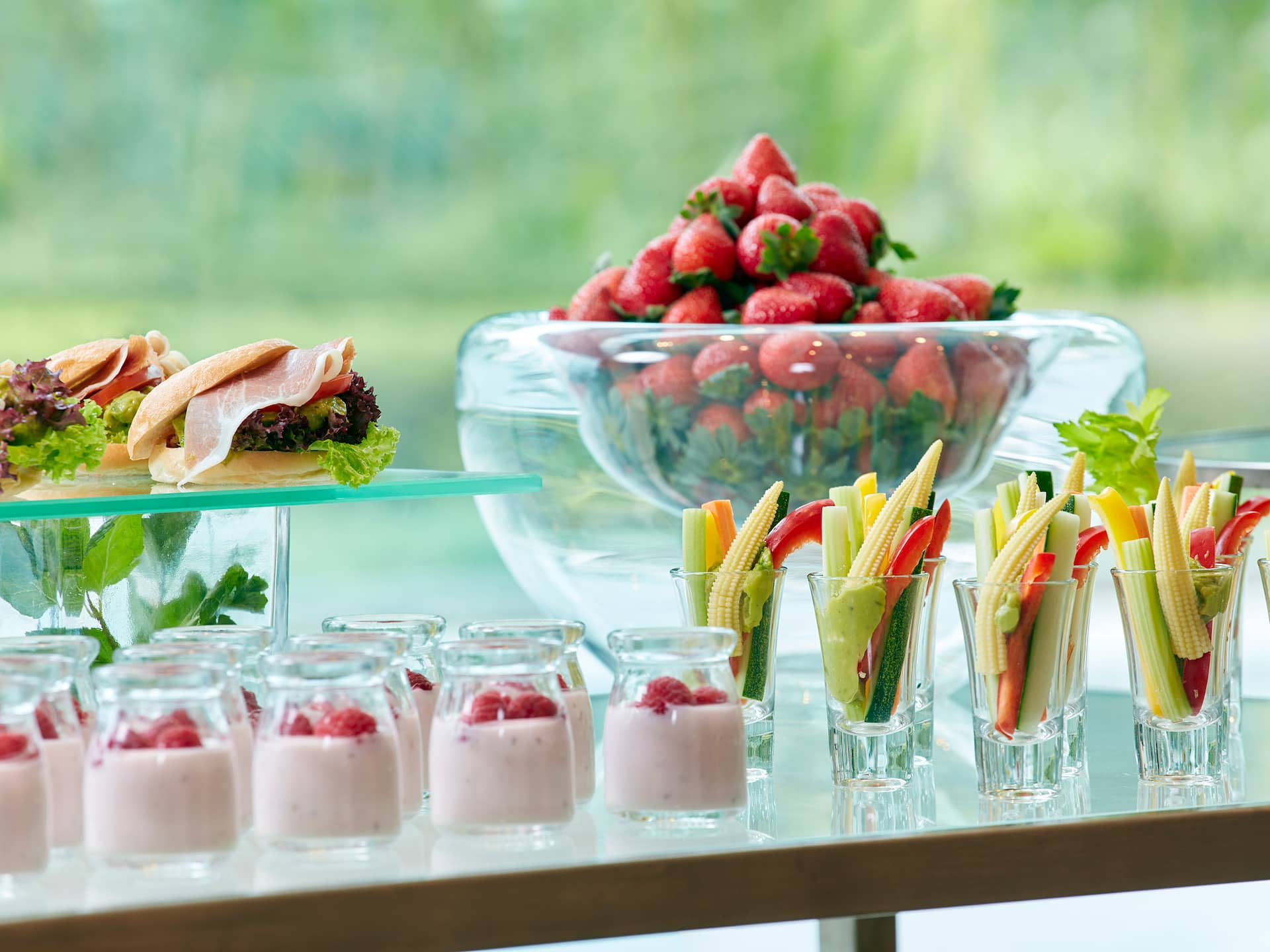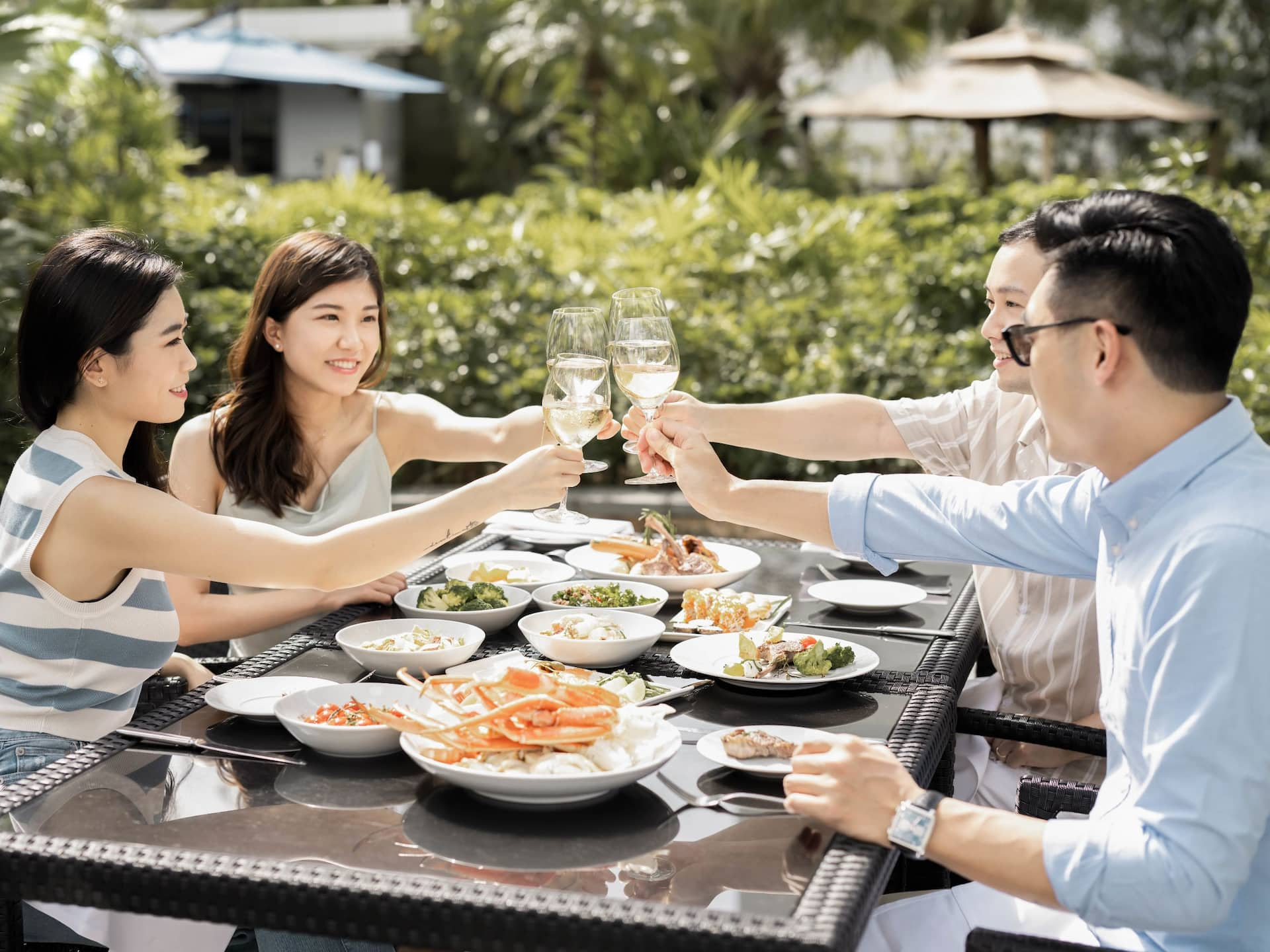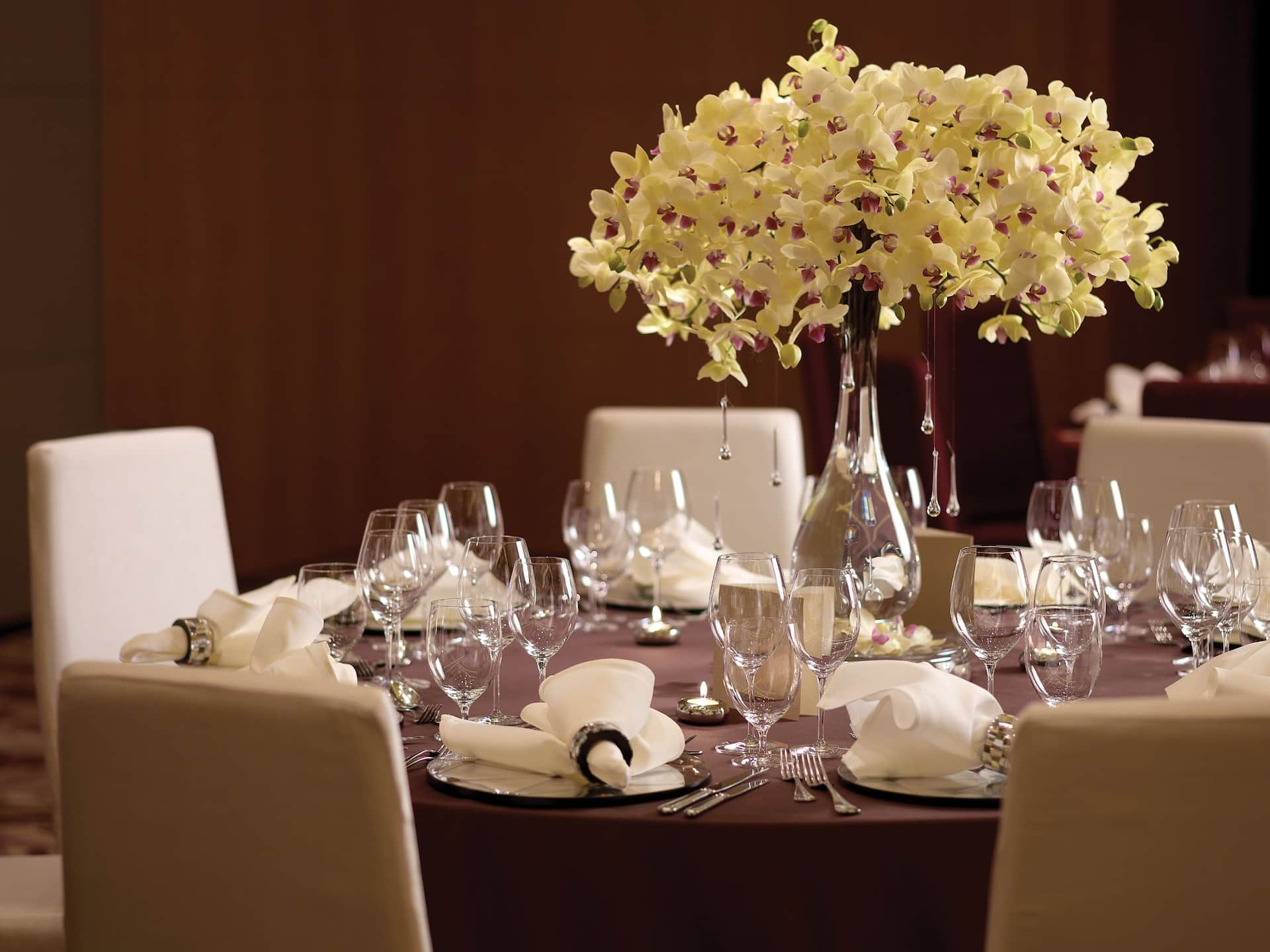Environmental Sustainability
Caring for the planet is a natural extension of Hyatt’s purpose – to care for people so they can be their best. At Hyatt Regency Hong Kong, Sha Tin, we are taking a number of steps to help make a difference.
With the purpose of leading the sustainability efforts of the hotel, we have established an ESG committee which consists of colleagues from different departments. We use Hyatt EcoTrack to track sustainability metrics including greenhouse gas emissions, energy, water, waste, and recycling. These insights are important to help advance efficiency improvements.
Click HERE to learn more about the hotel's sustainable practices.
Click HERE to view our sustainability policy statement.
Carbon Emissions and Water
- Water-saving initiatives such as low-flow and flush guest-facing water fixtures have significantly reduced water usage.
- Electricity saving initiatives through air conditioning systems, lighting systems, heat pumps and electricity usage.
- Increase the use of renewable energy by supporting sustainable transportation development through partnering with Tesla and Shell in building a electric vehicle charging station, in which the site is also the largest charging station of Tesla in Asia Pacific.
- Install a photovoltaic system to generate solar energy.
- Through our Conserve program, we change linens every third night unless requested otherwise, and guests may choose to reuse towels by leaving them hanging.
- Low-flow and flush guest-facing water fixtures has significantly reduced water usage

Waste and Circularity
- Partner with LightBlue to install FIT, a food waste monitoring system that tracks and reduces food waste and associated costs. Processes and policies are reviewed and improved to minimize food waste. Circular solutions, such as redistributing and/or transforming food leftover, are adopted. By the end of 2024, the hotel managed to reduce 34% of total food waste per cover in the 3 outlets.
- Reduce our wastage through better management of food production, tailored offering and adjusting concepts, take buffet as an example, food are served through live cooking stations upon guests' requests.
- Partner with local NGOs/charities such as Food Angel, Foodlink Foundation and New Life Psychiatric Rehabilitation Association for a series of food donation and food waste recycling programmes.
- Source recyclable containers and cutlery as much as we could, especially for our takeaway packaging. Plastic covers are not used for returning cleaned items from Hyatt-operated laundry or dry cleaning.
- Single-use small-bottle bathroom amenities, including body wash, shampoo and conditioner have been replaced with large format bottles in guestrooms.
- Partnership with SoapCycling to ensure used bathroom amenities are properly recycled.
- Water dispensers are placed in guestrooms to reduce the use of single-use plastic bottles.
- Recycling bins are available on all guest floors to encourage proper waste segregation.
- Collaborate with ecoSPIRITS to deliver eco-friendly cocktails using local gin stored in sustainable packaging.
- Guests can save HK$2 by bringing their own cup when purchasing any handcrafted beverage at Patisserie.
- Hydration stations are available in all workplaces.

Our Food Philosophy
- Support small local enterprises such as Wing Woo Bee Farm and iBakery under the Tung Wah Group of Hospitals, and focus on locally sourced ingredients and seasonal items on the menu.
- Sustainably-sourced fish and seafood with a heavy focus on ASC & MSC certified items. Endangered species are completely taken off the menu.
- High animal welfare products are used in our restaurants, including cage-free eggs.
- Purchase of plant-based meat to provide more options to vegetarians.
- Diners can pledge 1% of their bill to Zero Foodprint Asia who are helping farmers across Asia to shift to more climate friendly practices.

Additional Sustainability Measures for Meetings and Events
- Digital signage and Hyatt Event Concierge Apps to help enable a paperless meeting.
- Offering notepads and pens at a central location of the venue as a default setting.
- To reduce food waste, event organizers have to provide an accurate headcounts for each meal.
- Plant-based meat, vegan or vegetarian dining options available.
- Coordinating carpools to and from the airport, and/or organizing public transportation information for attendees.
- Water served using water containers is the default offering for meetings and events.
